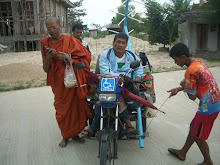Beacon station-An amateur station transmitting communications for the purposes of observation of propagation and reception or other related experimental activities.
Broadcasting-Transmissions intended to be received by the general public, either direct or relayed.
Control operator-An amateur operator designated by the licensee of a station to be responsible for the transmissions of an amateur station.
Control point-The locations at which the control operator function is per¬formed.
Earth station-An amateur station located on, or within 50 km of, the Earth's surface intended for communications with space stations or with other Earth stations by means of one or more other objects in space.
Frequency coordination-Allocating repeater input and output frequencies to minimize interference between repeaters and to other users of the band.
Grace period-The time FCC allows following the expiration of an amateur license to renew that license without having to retake an examination. Those who hold an expired license may not operate an amateur station until the license is reinstated.
One-way communications-; Transmissions that are not intended to be answered. The FCC strictly limits the types of one-way communications allowed on the amateur bands.
Peak envelope power (PEP)- The average power of a signal at its largest amplitude peak.
Prohibited transmissions-Certain types of transmissions, such as music and obscenities, that the FCC doesn't allow on the amateur bands.
RACES (Radio Amateur Civil Emergency Service)-A part of the amateur service that provides radio communications only for civil defense purposes.
Repeater station-An amateur station that automatically retransmits the signals of other stations.
Space station-An amateur station located more than 50 km above the Earth's surface.
Temporary state of communication emergency-When a disaster disrupts normal communications in a particular area, the FCC can declare this type of emergency. Certain rules may apply for the duration of the emergency.
Third-party communications-Messages passed from one amateur to another on behalf of a third person.


